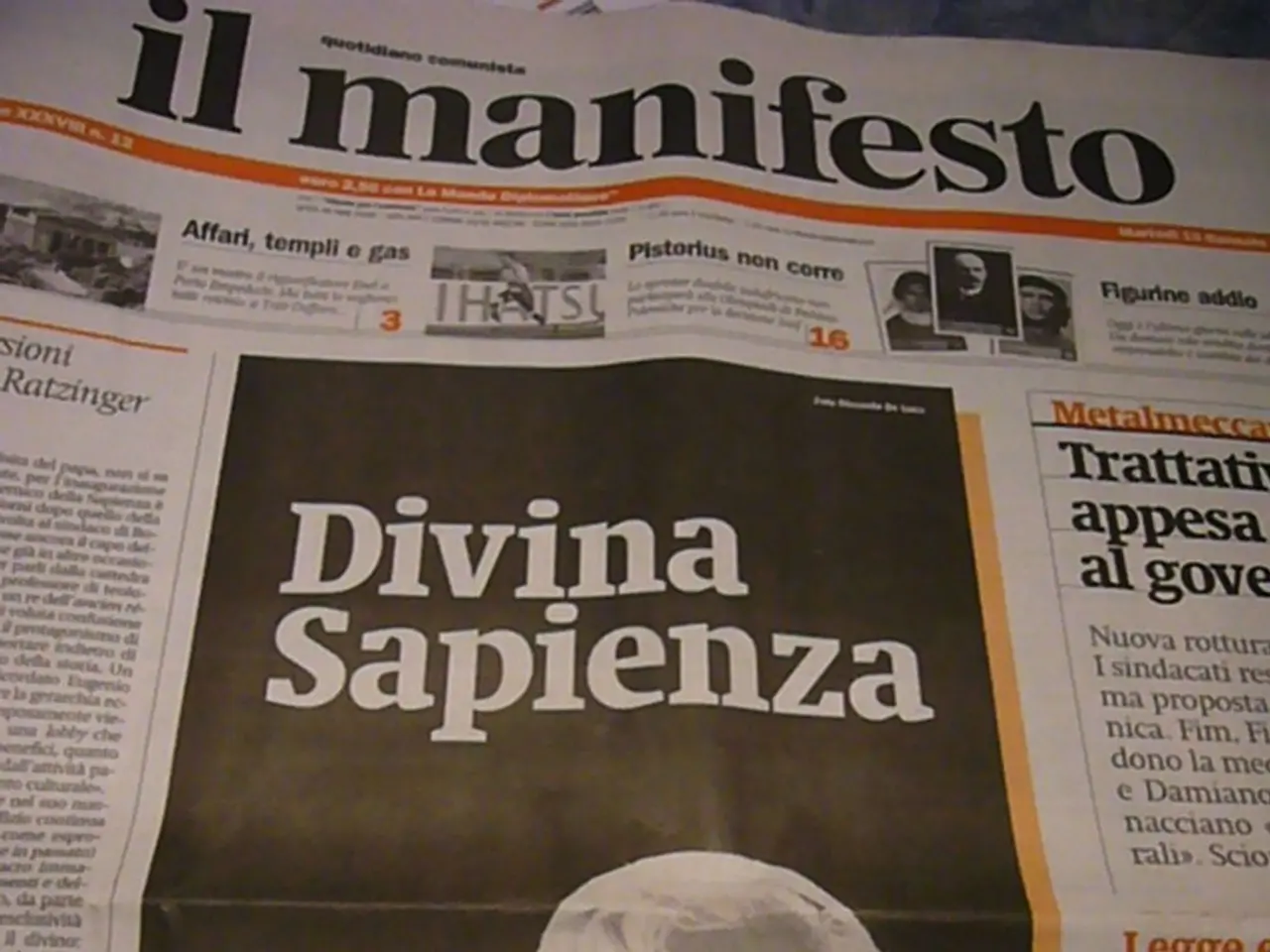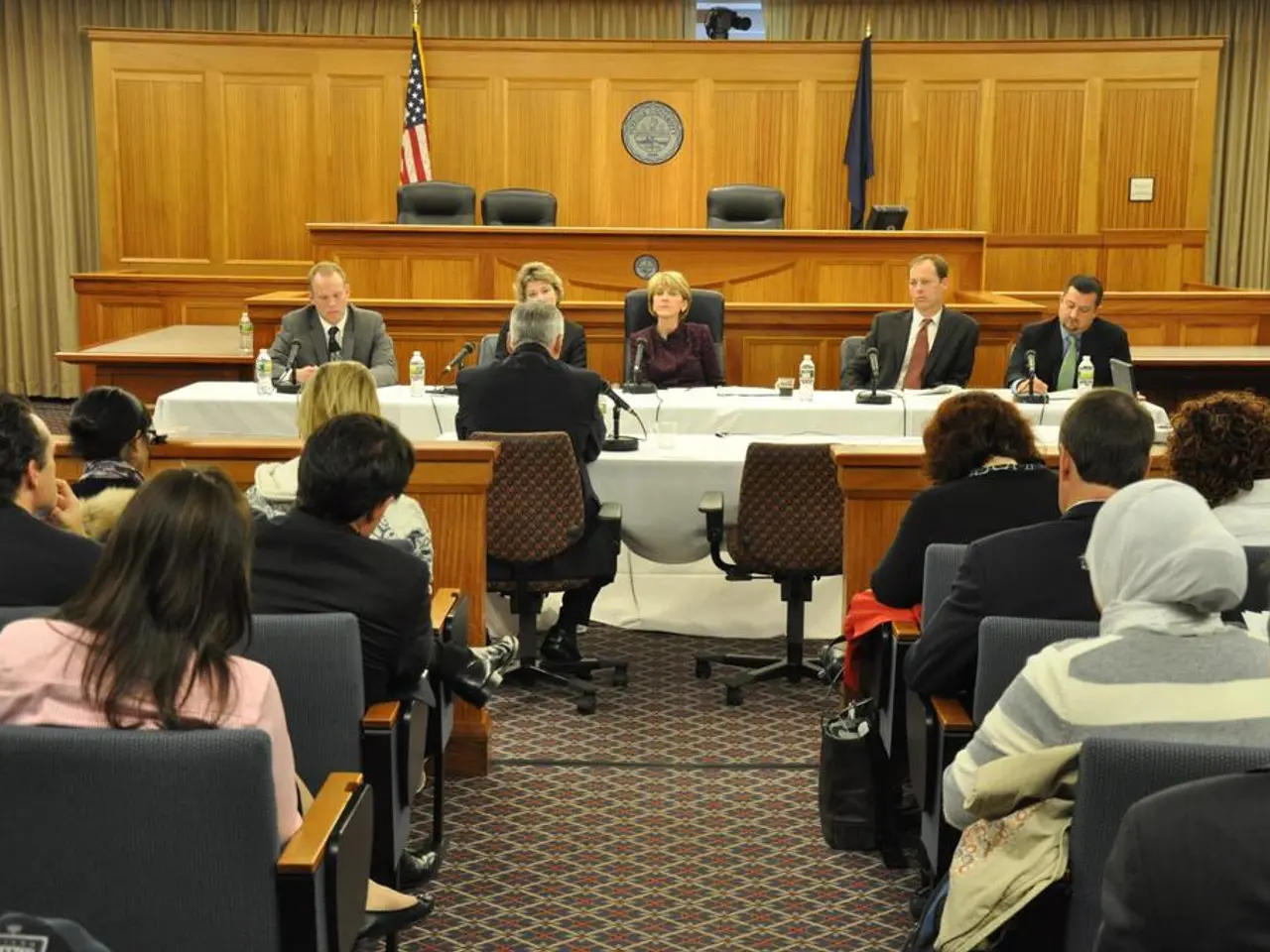Trump criticizes Federal Reserve Chair Powell for not reducing interest rates, deeming him an "average mentally person."
Grabbing headlines, President Donald Trump vehemently criticized Federal Reserve Chairman Jerome Powell, slamming him as "terrible" during a NATO summit press conference in The Hague, Netherlands.
Trump, known for his candid remarks, shared his frustration over Powell's interest rate policies, claiming in an informal manner that Powell's decisions will force the nation to pay more for its debt. He bluntly expressed "We're going to end up paying two points or three points more." This outburst was followed by a sarcastic remark, "Three points would be about $900 billion a year because of this very average mentally person - he's an average mentally person. I'd say low in terms of what he does. Low IQ for what he does."
The President's latest comments come as Powell testified before a Senate panel earlier in the day. Powell's leadership as Fed Chair is up until May 2026, while his term as a board member ends in January 2028. The President has hinted at having three potential replacements in mind for Powell.
Earlier that day, Trump also took to social media to target Powell, suggesting "political motives" for possible interest rate cuts before the 2024 election. Vice President JD Vance chimed in as well, expressing curiosity about potential political reasons behind Powell's decision to cut rates aggressively prior to the upcoming election, but being hesitant to do so now with inflation on the decline.
During his Senate testimony, Powell stated that the economy remained strong, with the unemployment rate staying low and the labor market close to full employment. The Fed Chair admitted to an ongoing concern for rising inflation, but emphasized the importance of intentionally slowing the pace of rate increases to avoid stifling economic growth. Powell cited uncertainty due to ongoing trade tariffs as a factor in the Fed's cautious approach.*
The Fed's Cautious Approach: Balancing Inflation Management and Market Stability
Powell has consistently maintained a measured stance regarding interest rate changes. This cautious approach has been rooted in concerns about potential inflation risks and economic uncertainties. Inflation, while cooling slightly in 2025, still displays "sticky" aspects, such as persistent housing costs, that require careful attention. By adopting a wait-and-see approach, Powell aims to ensure a healthy, long-term economic recovery.
Political Factors Influencing Powell's Tenure
It's no secret that Powell's reluctance to cut interest rates at the behest of former President Trump created political tension, with Trump labeling Powell as "incompetent" and urging Congress to "work him over." Some speculate that Trump might have considered naming Powell's successor earlier than originally planned (possibly by late 2025) to exert more influence on Fed policy and align it more closely with his economic agenda.
Powell's positive or muted reception from Congress and support from the market have helped him to weather the political storm. This backing serves as an essential counterbalance to executive branch attacks, bolstering Powell's resolve to serve his full term.
In essence, Powell's extension as Federal Reserve Chair is rooted in his data-driven, cautious approach to monetary policy, despite political pressure from certain circles for immediate economic stimulus. This commitment to sustained and steady economic growth, notwithstanding ongoing trade uncertainties, contrasts sharply with the demands of certain political figures.*
- Trump's criticism of Jerome Powell over interest rate policies could lead to an increase in the country's debt due to higher interest payments, as he stated, "We're going to end up paying two points or three points more."
- The ongoing political tension between Trump and Powell stems from Powell's reluctance to cut interest rates that Trump suggested would benefit his economic agenda.
- The economy could face potential instability if the Federal Reserve adopts an aggressive trading policy without considering the impact on inflation and economic growth, as observed by JD Vance.
- Powell's leadership at the Federal Reserve, despite political pressure for immediate economic stimulus, is grounded in a data-driven, cautious approach to monetary policy, prioritizing sustained and steady economic growth.





